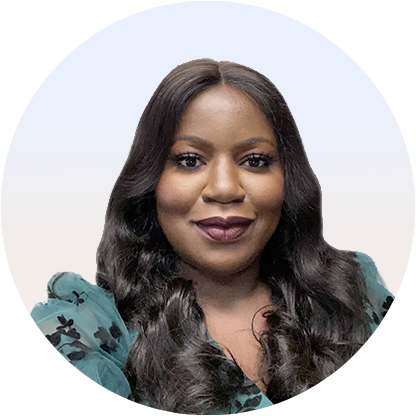What Do ADHD Medications Do?
Medications can help reduce symptoms of hyperactivity, inattentiveness, and inactivity. These behaviors can make day-to-day life a challenge for a variety of reasons, and the right medications can ensure it’s all more manageable.
Certain ADHD medications can also treat comorbid anxiety, while others, like stimulants, can potentially exacerbate anxiety symptoms. This is another reason it’s imperative that a medical practitioner evaluate any patient’s needs in advance (and why it's never a good idea to borrow another person’s ADHD medication).
Medications Often Prescribed for ADHD
There are two main types of medication for ADHD: stimulants and non-stimulants. The goal of all medication is to improve attention by helping normal brain chemicals work better together. Both types of medications have pros and cons to consider.
Stimulants
The most commonly prescribed stimulant products include methylphenidate or amphetamine. Stimulants work by boosting and balancing the performance of neurotransmitters, which are naturally occurring brain chemicals.
Some common stimulants prescribed for ADHD include:
- Ritalin
- Metadate
- Daytrana patch
- Focalin
- Adderall
- Evekeo
The effects of stimulants can be incredibly effective for people with ADHD. About 70% of adults and 70% to 80% of children who use stimulants find that they improve ADHD symptoms, and they can begin working almost immediately.
However, there are some possible downsides to consider. While many with ADHD are able to use this type of medication without any major issues, others may find that stimulants cause side effects such as headaches, moodiness, jitteriness, increased pulse, increased blood pressure, loss of appetite, and sleeplessness. This type of ADHD medication is typically not a good fit for people with health concerns like high blood pressure, anorexia, anxiety, or bipolar disorder.
Caffeine can act as a minor stimulant, and some studies have reported it serves as an aid to develop greater concentration with ADHD. Of course, too much of any substance, including caffeine, can be potentially damaging and worth monitoring for overdependence. Additionally, most healthcare providers advise against using caffeine in this way because it is not as effective as medication.
Non-stimulants
For about 20% to 30% of people with ADHD, stimulants aren't effective. Furthermore, some people may be advised against taking them for health reasons. Fortunately, non-stimulants are available as an alternative. These medications work by increasing the level of norepinephrine in the brain.
Some common non-stimulants prescribed for ADHD include:
- Strattera
- Intuniv
- Kapvay
Stimulants typically take longer to start working. However, they are associated with fewer side effects compared to stimulants. However, there is still a possibility that some side effects may occur, such as nervousness, dizziness, fatigue, sleep problems, upset stomach, and dry mouth. Many people who take non-stimulants find that side effects tend to decrease over time.
What to Expect When Beginning Treatment
The type of medications and dosage — or whether you need medication in the first place — is best determined by medical practitioners who can evaluate the benefits and risks associated with each option. You'll also need to be monitored by a licensed clinician who will keep track of your progress along the way. This is especially important with ADHD treatment as these medications are only prescribed for 30 days at a time. In order to access refills for your prescription, you must give an update on your health and treatment progress to your provider. If you become a Done member, you'll be able to provide these progress reports through a follow-up appointment or a written narrative of your health status.
Taking medication for ADHD as an adult may involve some trial and error. This is especially true if you're being treated for the disorder for the first time. Healthcare providers typically start with the lowest dosage, then move up from there if the desired effects aren't achieved. Your provider may also suggest trying different medications if the one you're currently taking isn't effective.
Finding the right medication for you begins with greater understanding and talking to a medical professional. Start by taking the Done one-minute assessment test to learn more. We'll set you up an appointment with a licensed clinician who can help you get an accurate diagnosis and prescribe treatment based on your unique needs and health concerns.
Done members also receive ongoing assistance from a dedicated care team and follow-up appointments with their clinician. This is especially important if you're starting ADHD medication for the first time as it may take a few tries to find the right medication and dosage for you.
Sources:
https://www.mayoclinic.org/diseases-conditions/adult-adhd/diagnosis-treatment/drc-20350883
https://www.ncbi.nlm.nih.gov/pmc/articles/PMC3666055/
https://www.additudemag.com/adhd-medication-side-effects-that-no-one-should-tolerate/
https://www.sciencedirect.com/science/article/abs/pii/S0306987710003531
https://chadd.org/adhd-weekly/qa-what-about-caffeine-for-adhd/
https://www.additudemag.com/stimulants-vs-nonstimulant-adhd-medication-video/
https://my.clevelandclinic.org/health/treatments/11766-adhd-medication
https://chadd.org/about-adhd/adhd-quick-facts-medication-in-adhd-treatment/
https://www.additudemag.com/slideshows/adhd-medications-optimizing-treatment/






